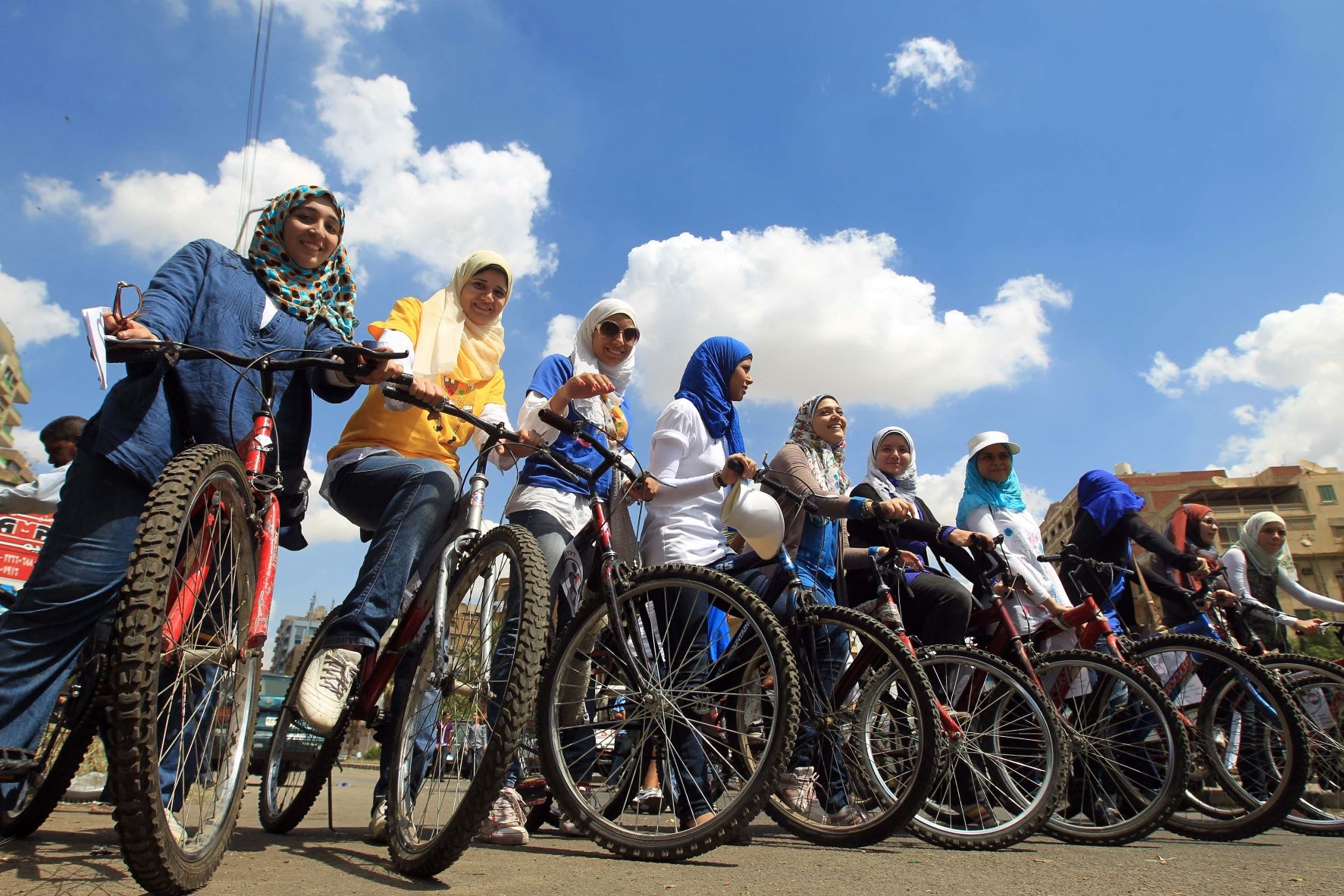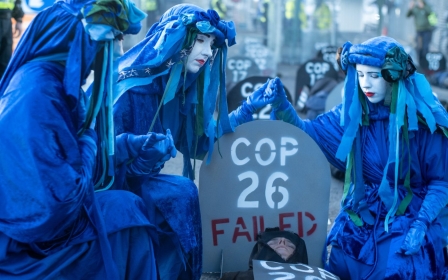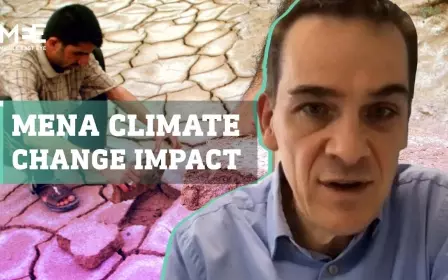Cop27: Rights groups warn Egypt against restricting protest during climate summit

Rights groups have expressed concern at Egypt's threats to restrict the right to protest during the Cop27 climate summit, set to take place in the resort town of Sharm el-Sheikh in November.
In a joint statement by 36 rights groups, including Human Rights Watch, Amnesty International and the Egyptian Initiative for Personal Rights, campaigners criticised comments by Egyptian Foreign Minister Sameh Shoukry in which he implied there would be a designated area for protesters during the summit.
Speaking to Associated Press in May, Shoukry said there would be “a facility adjacent to the conference centre” that would allow demonstrators "full opportunity of participation, of activism, of demonstration, of voicing that opinion".
He also said that they would be providing “access, as is traditionally done on one day of the negotiations, to the negotiating [hall] itself”.
The rights groups took these comments to mean that the government would be imposing restrictions on protests outside the "government-designated" areas.
New MEE newsletter: Jerusalem Dispatch
Sign up to get the latest insights and analysis on Israel-Palestine, alongside Turkey Unpacked and other MEE newsletters

"Under international human rights law and standards, demonstrations should be facilitated as a general rule within 'sight and sound' of their target audience," said the groups.
"The Egyptian authorities should unconditionally allow peaceful protests and gatherings around the time of COP27, including in Cairo, the Egyptian capital, and other cities."
Since President Abdel Fattah el-Sisi ousted elected leader Mohamed Morsi in a military coup in 2013, his government has banned protests and jailed thousands for taking part in anti-government protests or sit-ins.
Rights groups have accused Sisi's government of jailing peaceful critics under the pretext of fighting terrorism.
According to the Arabic Network for Human Rights Information, the total number of prisoners in Egypt in March 2021 was 120,000, with an estimated 65,000 political prisoners - at least 26,000 of whom were held in pre-trial detention.
Middle East Eye delivers independent and unrivalled coverage and analysis of the Middle East, North Africa and beyond. To learn more about republishing this content and the associated fees, please fill out this form. More about MEE can be found here.




